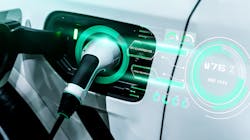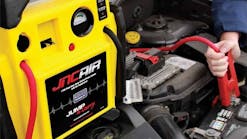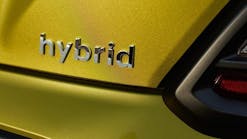How shop owners can respond to the electric vehicle transition
The current state of the electric vehicle (EV) transition can cause shop owners to question whether they should invest in specific equipment and training.
From California banning the sale of new internal combustion engine (ICE) vehicles by 2035 to automakers increasing their investment in electric vehicle assembly and battery technology, OEMs and policymakers around the globe are taking major strides to ensure electric vehicle adoption is the future. As such, EV vehicle repair is expected to increase in the coming years as those vehicles reach the end of their warranty.
That said, EVs still have a long way to go in becoming the predominant vehicle on the market. Out of the 285 million vehicles on the road, only 1.7 million are electric. Also, many of these vehicles reside in ‘hot zones’ or states/communities where EV adoption is highly incentivized.
Balancing these conditions and understanding where the need for service is located is important for shop owners and technicians to understand how to prepare their shops for the EV transition. Not every shop or market is the same, and understanding the competitive landscape is a critical factor in deciding how to invest your resources.
Setting up your shop for EVs
Many believe that investing in EV service means they must do so with an “all-or-nothing” attitude. In reality, preparing a shop for EV service is much more nuanced and can be better paced.
Many aspects of gas-powered service and maintenance will carry over to servicing electric vehicles. No matter the method of travel, vehicles will always have certain characteristics that need servicing – including wheels, tires, suspension, brakes, and more. This will ensure shop owners can still provide basic services to EV customers without the need for any additional investments.
Tools and equipment
Investing in certain tools and equipment can be the key to setting a shop up for future success.
For instance, adding an EV charger to your shop and offering complimentary charging is a unique service to entice EV drivers away from your competition. If you’re considering installing an EV charger, it’s important to consider speed, ease of use, capacity, and more. For instance, chargers like the Bosch EV3000 DC Fast Charger were designed to cater to the needs of shop owners. It provides faster charging compared to other charging stations, has user-friendly controls, and can be installed either indoors or outdoors.
As for additional equipment, important considerations include EV-compatible multimeters and insulation testers to handle the electric vehicle’s higher voltage. While newer ICE vehicles will have up to 48-volt systems, electric vehicles can see voltages in the hundreds or thousands. Investing in high-voltage insulation testers may seem like a tool for the future, but they are actually a wise investment today. Many insulation testers, including the Bosch FSA 050 CAT IV, CAT III Insulation Tester, are specifically designed to work on electric vehicles and hybrids.
Shop owners should also consider investing in high-quality safety gloves, warning signs, and high-voltage training – all of which are excellent for promoting safety across the shop.
Training
From there, shop owners can explore training resources for their technicians. Training is a highly effective avenue to increase the quality of service and invest in your employees. Offering EV service-related training to your technicians can be a great tool for recruiting and retaining high-quality talent looking to differentiate themselves from their peers.
Not every shop will need to invest their resources into EV service right away, due to varying demand in different markets. A shop in California, where 42 percent of EVs in the U.S. are sold, will have a different clientele than a shop in the Midwest. However, shops in the Midwest and rural areas have the opportunity to get ahead of their competition by taking the first step toward servicing EVs. Simply put, if EV owners need a service, and you’re the only shop in town that can do it – they’ll naturally go to you. The aftermarket is traditionally slower to adopt new technology, but doing so early can give one shop a competitive edge over another.
Electric vehicles will be more prominent as the years go by, and it’s up to each shop to assess their market and client base to strategically decide what level of investment is right for them. It won’t take a lot to get started, but it will take a first step.
Information provided by Bosch Automotive Service Solutions


